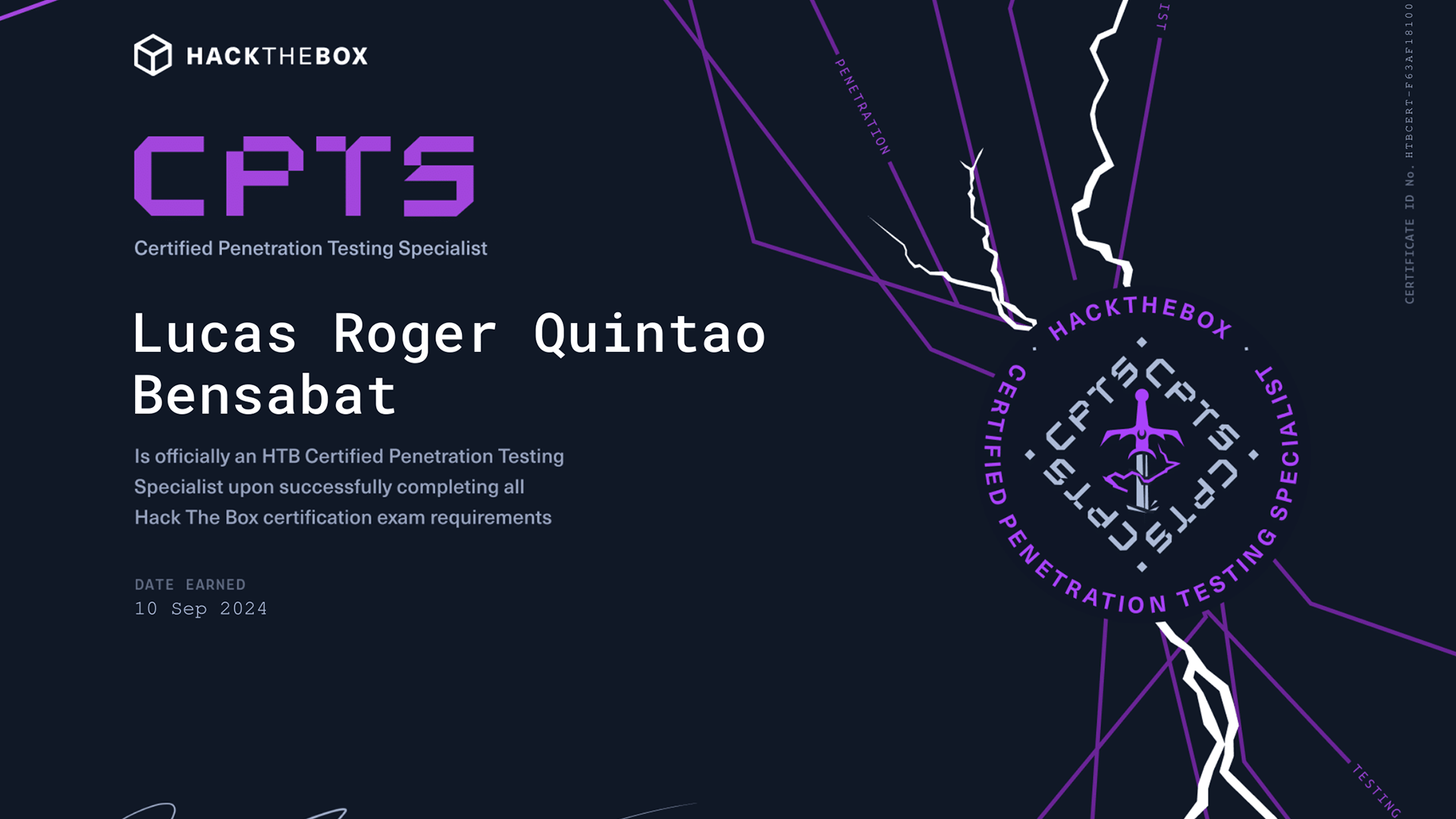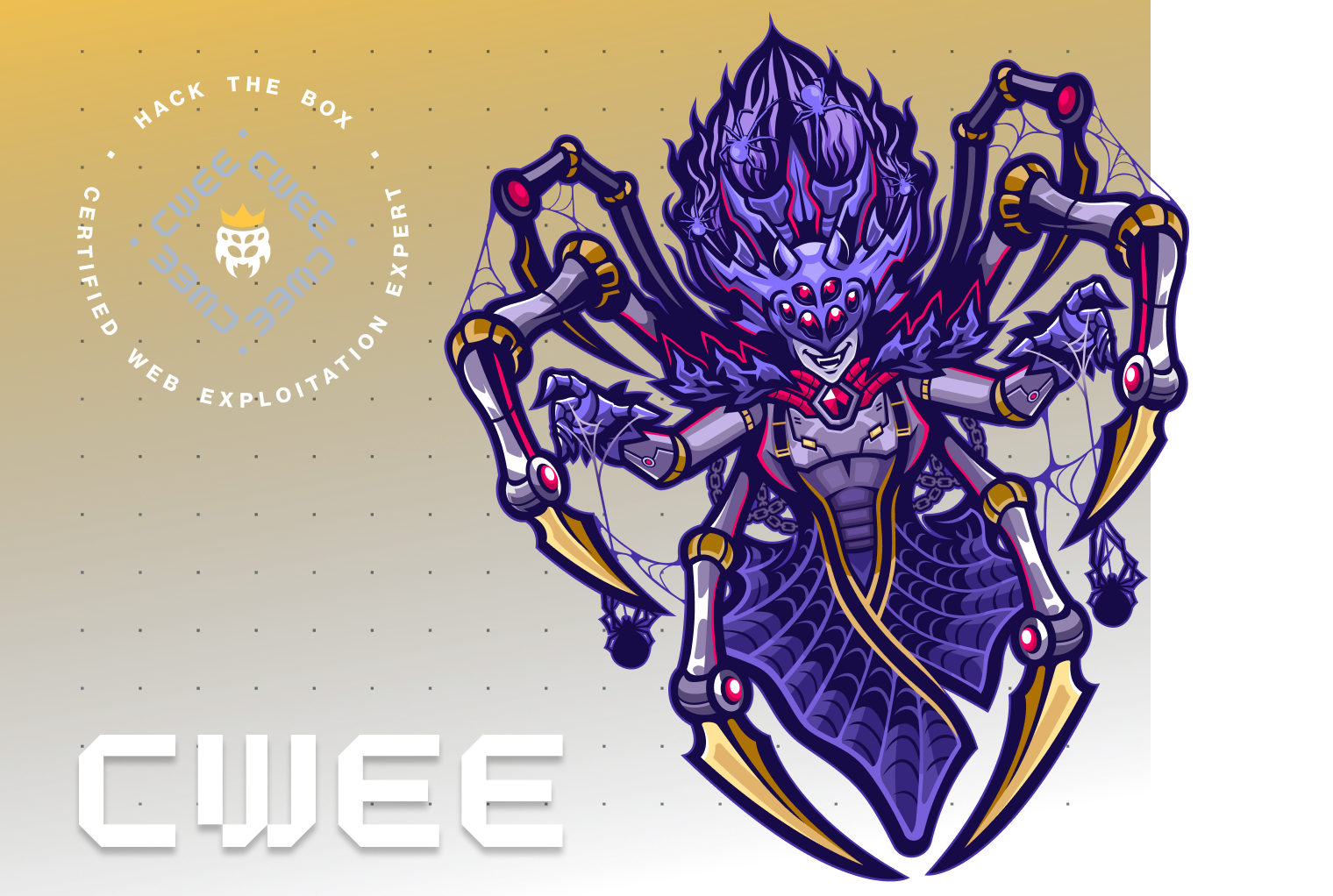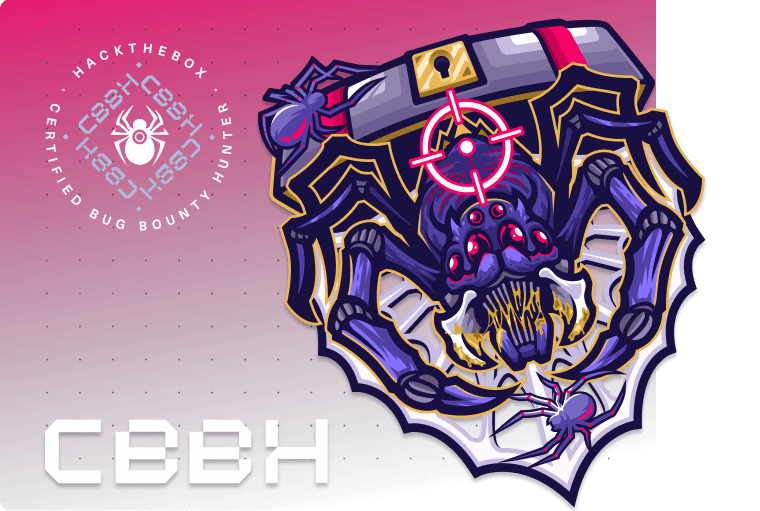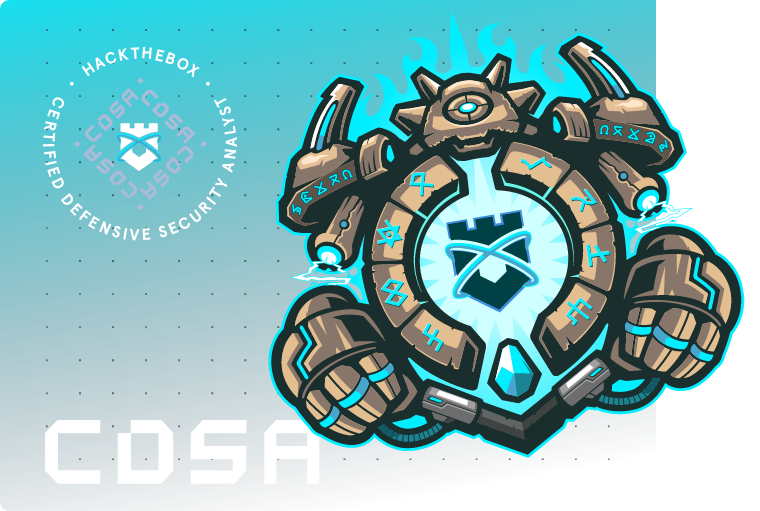
CPTS – My Preparation, Tips, and Advice
Introduction
What is the CPTS?
The Certified Penetration Testing Specialist (CPTS) is a highly regarded cybersecurity certification offered by Hack The Box (HTB).
It is designed for professionals who want to validate their skills in ethical hacking and penetration testing.
The CPTS certification demonstrates a candidate’s ability to conduct real-world security assessments, exploit vulnerabilities, and provide mitigation strategies.
It covers key areas such as network penetration testing, web application testing, and advanced exploitation techniques.
CPTS is ideal for individuals aiming to enhance their credentials in offensive security and become proficient penetration testers.
Why choose Hack The Box courses
Hack The Box (HTB) offers cutting-edge, hands-on cybersecurity training through its comprehensive certification programs.
With courses like the Certified Penetration Testing Specialist (CPTS), Certified Bug Bounty Hunter (CBBH), Certified Defensive Security Analyst (CDSA), and Certified Web Exploitation Expert (CWEE), HTB provides a real-world, lab-based learning experience that prepares students for high-demand roles in cybersecurity.
Each certification focuses on practical skills, ensuring that learners gain not only theoretical knowledge but also the ability to solve real security challenges.
HTB’s certifications are respected for their rigor, making them ideal for professionals looking to stand out in penetration testing, web security, and SOC operations.
CPTS - My Preparation
Mindset and Strategy
Hack The Box (HTB) courses are designed to challenge and elevate your cybersecurity skills, but some text-based modules can be lengthy and may feel overwhelming at times.
However, remember that each module is an essential step in mastering complex concepts and becoming proficient in real-world hacking techniques.
While it’s normal to experience frustration, these moments often lead to breakthroughs that significantly enhance your learning.
Keep pushing forward, stay focused on the end goal, and you’ll emerge with the practical skills needed to succeed in the cybersecurity field.
Every challenge you overcome brings you closer to certification and real-world application.
HTB - ProLabs
Hack The Box (HTB) ProLabs provide an exceptional training ground for mastering various aspects of penetration testing, with a strong emphasis on Active Directory (AD) exploitation. These advanced, real-world simulations, such as Zephyr, Offshore, Cybernetics but not only, are particularly valuable for developing the critical skills needed to navigate the complex, interconnected systems often found in enterprise environments.
While ProLabs cover a wide range of skills (like network exploitation, post-exploitation, and privilege escalation) AD exploitation is a key focus. Many of these labs simulate real corporate environments where AD misconfigurations are common, offering you the chance to practice everything from lateral movement and credential harvesting to pivoting within an enterprise network. Understanding how to exploit these vulnerabilities is crucial for exams like CPTS and real-world penetration testing engagements.
The value of HTB ProLabs lies in their ability to immerse you in realistic attack scenarios. You can refine your abilities in web application attacks, network pivoting, and privilege escalation while simultaneously honing your AD exploitation skills. By completing these labs, you’re gaining more than just technical knowledge; you’re developing the practical expertise needed to exploit weaknesses in enterprise-level infrastructures.
Ultimately, the ProLabs are an invaluable resource for anyone looking to prepare for CPTS and other certifications while also building a foundation of skills essential for real-world cybersecurity challenges. The lessons learned, particularly in AD exploitation, make you more effective and adaptable in professional environments.
The Importance of Taking Notes
Taking detailed notes during the Certified Penetration Testing Specialist (CPTS) course is crucial for success.
While HTB provides comprehensive cheatsheets for quick reference, creating your own notes throughout the course is essential for deep understanding and long-term retention.
Personal notes allow you to organize information in a way that makes sense to you, helping reinforce critical concepts like enumeration, exploitation, and privilege escalation.
Additionally, these notes become an invaluable resource during the CPTS exam.
Since the exam is open-note, having personalized, well-organized notes at your fingertips can make a significant difference when working through complex scenarios.
By combining your notes with the provided cheatsheets, you’ll be better equipped to quickly reference the material, understand attack techniques, and solve problems efficiently.
In short, while the HTB cheatsheets are a great aid, personal notes offer customized insights, reinforce learning, and enhance your ability to apply knowledge during the exam.
Networking
In cybersecurity, building connections with like-minded, passionate individuals is crucial to personal growth and professional success.
Networking allows you to exchange knowledge and seek guidance when you’re stuck on difficult concepts or challenges.
Whether it’s through online forums, study groups, or professional communities, having a support network can accelerate your learning by exposing you to diverse perspectives and solutions you might not have considered.
Helping others in the community is equally important.
When you assist someone, you’re actively reinforcing your own understanding of the material.
Teaching or explaining a concept to others not only proves you’ve grasped it, but it also strengthens your knowledge and problem-solving skills.
Networking thus becomes a two-way street: others help you grow, and you, in turn, help solidify your own expertise by supporting them.
Dealing with Challenges
Overcoming Obstacles
Throughout the CPTS course, it’s common to face challenges that can make you feel stuck, particularly when you’re tackling difficult exercises or complex concepts.
It’s easy to get frustrated, but these obstacles are part of the learning process.
During my experience, I found myself hitting roadblocks several times, especially when I couldn’t resolve certain exercises.
However, persistence and a problem-solving mindset always led me to the solution.
When you encounter these tough moments, take a step back, reassess the problem, and break it down into smaller parts.
Often, the solution lies in revisiting previous modules, consulting your notes, or seeking help from the community.
The key is to stay determined and trust the process.
Each time you overcome an obstacle, you reinforce your understanding and improve your ability to solve similar challenges in the future.
These moments of struggle are when the most significant growth happens, so don’t get discouraged—keep pushing forward, and you’ll find that every challenge can be overcome with persistence and a bit of creativity.
Post-Exam Reflections
Advices to use during the exam
What I've done well
Taking detailed notes during the exam can be a game-changer in managing your time and keeping track of your progress. One strategy that worked exceptionally well for me was writing down the attack chain as I was working through each stage, rather than waiting until the end. This approach allowed me to stay organized and avoid missing any key steps or findings.
By documenting each step of the attack, including enumeration results, vulnerabilities found, and exploitation methods used, I saved a lot of time when I needed to backtrack or troubleshoot issues. This running log also made it easier to maintain a clear view of the overall progress, ensuring that I didn’t repeat unnecessary steps or overlook critical details. Additionally, it helped streamline reporting, as I could quickly refer back to each phase of the exam without having to retrace my actions.
In essence, live note-taking during the exam keeps you focused, reduces errors, and significantly improves your efficiency, making it easier to handle the complex, multi-step tasks you’ll face in the CPTS.
During the CPTS exam, documenting every finding, even those not directly related to the attack chain, is essential for both your success and professional growth. While this practice will make your report longer—my report ended up being 158 pages—it greatly increases your chances of passing the exam. More importantly, it hones your ability to write detailed, professional reports, which is a crucial skill in the field of cybersecurity.
Writing down each finding, whether it’s a vulnerability, configuration issue, or potential exploit path, ensures you don’t overlook critical details. Even if a finding doesn’t contribute directly to the final attack chain, it showcases your thoroughness and attention to detail, which are highly valued in penetration testing reports. This also helps you better understand the environment as a whole and gives the examiners a full picture of your approach.
Writing the report after the CPTS exam can feel like an exhausting task, especially after spending days on challenging exercises. You may be tempted to skip over certain details, thinking “The examiners won’t notice” but this mindset can be risky. Thoroughness is key to demonstrating your expertise, and overlooking even minor details can affect the quality of your final submission.
When you feel the temptation to cut corners, it’s essential to take a break. Step away, clear your mind, and return with fresh focus. This allows you to maintain the discipline and commitment needed to document every important step of your process. The report is not just about passing the exam; it’s a reflection of your professionalism and attention to detail, traits that are crucial in the real world of cybersecurity.
Staying committed to writing a comprehensive report, no matter how tedious it may seem, increases your chances of passing and ensures that your work is accurate and complete. Your dedication to reporting everything in detail will speak volumes about your thoroughness and expertise.
My errors and advice I want to give to you
The CPTS exam is 10 days long, and managing your time effectively is crucial to completing both the practical tasks and the report. If possible, it’s highly recommended to take time off from work to focus entirely on the exam. Balancing the exam with other responsibilities can lead to exhaustion and poor performance, as happened in my first attempt when I mismanaged my holidays and didn’t finish my report in time.
Taking breaks to recharge is also vital to avoid burnout and maintain your focus throughout the 10-day period. Proper planning and dedicated time will help you stay on track and give you the best chance to pass the exam.
Overthinking can be a significant obstacle during the CPTS exam. The exploits and tasks are not as complex as they may initially seem. If you find yourself struggling with a particular issue or task, it’s important to step back and assess the situation calmly.
If something feels too challenging, revisit your enumeration and assessment steps. You might be overlooking a simpler solution or missing a crucial detail. Overthinking can lead to frustration and wasted time, so it’s essential to keep your approach systematic and grounded in your initial findings.
By returning to the basics and methodically re-evaluating each step, you can often identify where the confusion lies. Remember, the goal is to stay focused and avoid getting bogged down by complexity. Trust your process and use the structured approach to solve problems more effectively without overcomplicating them.
Hackthebox offers two exam attempts if you submit a report, even if it’s not fully completed. This flexibility is a crucial aspect of the exam, and it’s important to approach it with the right mindset.
During my first attempt, I was fixated on succeeding on my initial try. This intense focus on passing at all costs led me to neglect breaks and lose sight of maintaining a balanced approach. The pressure to succeed on the first attempt can cause unnecessary stress and may result in skipping important breaks or overlooking crucial details.
Remember, you have two attempts, and the exam content remains the same for both. This means you can use the first attempt as a valuable learning experience. Don’t let the desire to pass on the first try overshadow the importance of a measured and methodical approach. Use the first attempt to identify gaps and refine your strategies, and then apply those insights to your second attempt.
By allowing yourself to take breaks and approach the exam with a calm mindset, you’ll be better equipped to perform well and make the most of both attempts.
Post-Exam Review
Completing the Certified Penetration Testing Specialist (CPTS) exam from HackTheBox was a rigorous yet enlightening experience. As I reflect on the journey, here are the summary about what we have talked until now:
Understanding the Exam’s Depth
The CPTS exam is designed to test a comprehensive range of penetration testing skills. It’s not just about applying known exploits but about thinking critically and creatively to identify and exploit vulnerabilities. The exam covers intermediate-level skills but demands a higher level of practical application than many entry-level certifications. This is not a beginner’s test; it requires a solid foundation in penetration testing and an ability to adapt and think outside the box.
The Importance of Time Management
The 10-day timeframe for the CPTS exam can seem ample, but it quickly becomes clear that balancing technical tasks and report writing is challenging. It’s essential to pace yourself and plan effectively. While the desire to pass on the first attempt can be motivating, it can also lead to unnecessary stress and missed breaks. Remember, the exam allows for two attempts, and using the first attempt to gauge your performance and refine your approach can be a strategic advantage.
Dealing with Overthinking
It’s easy to fall into the trap of overthinking complex scenarios during the exam. If a task seems too difficult, it might be worth revisiting your enumeration and initial findings. Often, the solution is simpler than it appears, and stepping back to reassess can help you avoid unnecessary complications.
Leveraging Both Attempts
The opportunity for a second attempt is a valuable aspect of the CPTS exam. If you don’t complete the exam in your first try, don’t be discouraged. Use the feedback and experience gained to improve and approach the second attempt with a refreshed perspective. This approach allows you to refine your strategies and address any gaps identified during the first attempt.
Preparing Thoroughly
Preparation for the CPTS exam involves more than just reviewing modules. Engaging with Capture The Flag (CTF) challenges that align with the exam’s topics can be particularly beneficial. Practice in real-world scenarios, including OWASP Top 10 attacks, lateral movement, and privilege escalation, will help solidify your skills and prepare you for the complexities of the exam environment.
Balancing Practicality and Preparation
The CPTS path is intensive, and while it offers a deep dive into penetration testing, the time commitment required can be significant. Balancing this with other professional responsibilities is crucial. The hands-on nature of the exam means that practical experience is just as important as theoretical knowledge.
Certification Benefits: Why CPTS is Worth Pursuing
While the Certified Penetration Testing Specialist (CPTS) certification from HackTheBox might not yet be widely recognized by HR departments across the board, its value within the offensive security community is undeniable. Here’s why pursuing the CPTS can be highly beneficial:
1. Industry Recognition Among Professionals
Despite its current level of formal recognition, the CPTS is highly regarded within the offensive security community. Many penetration testers and cybersecurity professionals acknowledge the certification’s rigor and the skills required to obtain it. This recognition within the industry can be incredibly valuable, as it often means that your certification will be recognized and respected by peers and potential employers in the field.
2. Demonstrates Advanced Skills and Knowledge
The CPTS is designed to assess intermediate penetration testing skills. Successfully earning this certification demonstrates your ability to handle complex scenarios, think critically, and apply intermediate techniques. This not only validates your skills but also sets you apart from others with more basic certifications.
3. Valuable Practical Experience
The CPTS exam is hands-on and requires you to complete a series of practical tasks and produce a detailed, commercial-grade report. This experience is invaluable, as it mirrors the real-world challenges faced by penetration testers. The practical skills gained during the preparation and examination process are directly applicable to job roles in cybersecurity.
4. Future Standardization Potential
Looking ahead, the CPTS certification has the potential to become a standard for new penetration testers. As the certification gains traction and its value becomes more widely recognized, it is likely to become a benchmark for assessing the skills of aspiring penetration testers. Being an early adopter of this certification can position you advantageously in the field, showcasing your commitment to staying at the forefront of industry standards.
5. Enhances Career Prospects
While it may not be universally recognized by all HR departments today, the CPTS certification can still enhance your career prospects. It serves as a strong testament to your capabilities and can be a significant differentiator in competitive job markets. Additionally, as more organizations become familiar with the certification, its value and recognition are likely to grow.
6. Reflects Commitment to Professional Growth
Pursuing and achieving the CPTS certification reflects a serious commitment to professional growth and continuous learning. It shows that you are dedicated to advancing your skills and staying updated with the latest trends and techniques in penetration testing.
Conclusion
In summary, while the CPTS may not yet be a widely recognized credential among all HR departments, its benefits within the offensive security community are substantial. The certification demonstrates intermediate skills, provides practical experience, and has the potential to become a standard in the future. For anyone serious about a career in penetration testing, the CPTS is a worthwhile investment that can set you apart and pave the way for future opportunities in the field.



